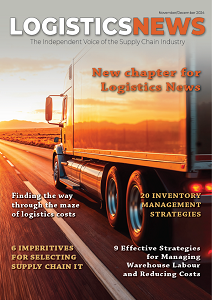'Line of sight' in the supply chain has taken on a new meaning in the age of artificial intelligence (AI) and machine learning (ML). Rather than simply tracking stock movements and using this data to attempt to influence the end consumer to buy a product, there is now massive investment in trying to ‘own’ the retailer from a data perspective. The focus has shifted to tracking everything retailers sell and who they sell to, preferably in real time.
However, while this may work at a formal retail level, in the main market there are challenges that often obscure line of sight due to missing data. Addressing this ‘missing link’ and obtaining the right data from throughout the supply chain is key to gaining clear line of sight and realising the true value proposition of data.
The South African challenge
Understanding stock movements at a retail level as well as the behaviour of retailers is valuable data.
However, the only real way of achieving this currently is through specialist point-of-sale devices, and this is where the market focus currently lies. The problem is the human factor – in the main (informal) market, spaza shop owners tend to be selective of what they run through these point-of-sale devices, for a number of reasons.
Many spaza customers are unbanked and retailers run on a cash basis, making it easy to bypass these devices. In addition, they may not wish for their true revenue to be identifiable, or they may not want the manufacturer or wholesaler to see their pricing and stock movements. This, then, obscures line of sight since the data is incomplete and potentially inaccurate. The view into the ecosystem is noisy, and the insight into the end of the supply chain is not necessarily a true reflection. Decisions made based on this data, therefore, cannot be trusted at face value.
The missing element While trust in point-of-sale data may improve as retailers gain confidence and reassurance around the technology, currently this is not the ideal way of obtaining clear line of sight. Instead, it needs to be reinforced at a distributor and wholesaler level. At this level it is possible to gain insight into stock holding, rate of sale and ‘sales in’ numbers for the various retailers, including the informal sector. Through invoicing and delivery data, a comprehensive and clean version of stock numbers moving into main market trade can be obtained.
Efforts to obtain the missing element of line of sight into the main market needs to take on a new focus. Not only is data from the wholesaler and distributor leg already available, it has existing relationships and community engagements within the main market. The key to gaining clear line of sight is through these robust last mile distribution mechanisms, but a multi-fold approach is required. We need to look at embedding systems and platforms, but also at improving the financial literacy at wholesaler and strategic distributor level as a first port of call in improving smaller retailers, spazas and the communities they serve.
Maximum line of sight, maximum value Line of sight in the supply chain takes on a different view when you understand the role of the wholesaler and distributor, particularly in the South African context. When this first step is in place, then AI and ML can be harnessed to leverage real-time revenue opportunities. This includes understanding when the rate of sale of a product exceeds stock holding, or when the stock holding is in excess, or when the product is not represented across the retail universe.
These are all scenarios that translate to revenue opportunities.
The key is that different communities and areas have different requirements, and wholesalers and distributors need to be able to cater to this to maximise efficiency and profits. Having an AI platform backed by clean data generated through a clear line of sight can automate this and generate benefits throughout the supply chain. However, it all begins with the data and with identifying opportunities to maximise supply chain line of sight. •

.jpg)


